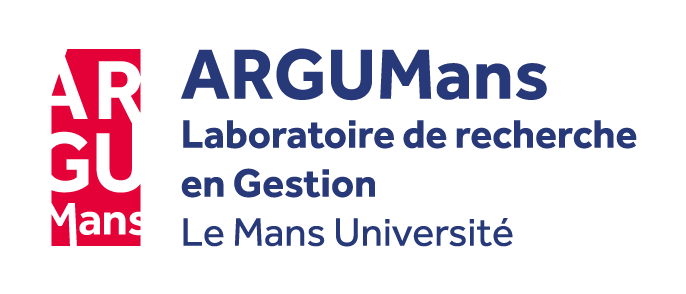PI-AW project: Perceived intrusiveness of anti-waste applications
PI-AW project: Perceived intrusiveness of anti-waste applications
PI-AW project: Perceived intrusiveness of anti-waste applications
Project leader: Christine Gonzalez, Professor, Le Mans Université
Co-leaders: Jean Marc Ferrandi, Professor (ONIRIS), Beatrice Siadou Martin, Professor (University of Lorraine)
 Nowadays smartphones, ubiquitous objects in the private space of the consumer, have become the main means of connection to the Internet. They constitute a part of the privacy of the consumer into which mobile applications penetrate whether their purpose is commercial or not.
Nowadays smartphones, ubiquitous objects in the private space of the consumer, have become the main means of connection to the Internet. They constitute a part of the privacy of the consumer into which mobile applications penetrate whether their purpose is commercial or not.
Anti-waste service-based applications seek to modify consumers’ behaviour in a way that is favourable to their well-being and to the well-being of society by allowing them to reduce waste, showing them good deals (Too Good to Go), offering to donate products that are not consumed (Checkfood), helping them with their eating habits (planning their shopping, managing their supplies, using products before their expiry date, etc.) (SoAppli).
To do this, they elicit the collection and processing of behavioural data. On a practical level, they encourage the consumer to establish very specific behaviours: to inform themselves, look for information about products or make a responsible commitment public. They make socially responsible consumption possible and, in this way, shape the behaviour of individuals. Consumer governmentality is based on specific tools such as, in this case, mobile applications and greater consumer responsibility.
Indeed, the consumer is “made aware of the issues around waste through the comments of the various stakeholders in the trade or academic press or on social networks” (Gonzalez and Siadou-Martin, 2019). Stakeholders “educate, guide and mould” the consumer (Cova and Cova, 2009) while seeking to modify “very personal and identity-giving practices such as the preparation of meals or shopping for food” (Gonzalez and Siadou-Martin, 2019).
Indeed, Giesler and Veresiu (2014) theorise on “the education of the responsible subject as a governmental process that focuses on markets as fundamentally moral projects and which understands the responsible subject not as a natural product of the capitalist market but as a functional element of its development and its stability”.
How does the consumer react to this process of greater responsibility? What are his motivations for adopting these mechanisms? How does he react to the attempt to change his behaviour? Now, being present on a personal object such as an individual's smartphone means entering their private life and may be perceived as intrusive.
Researchers in marketing and information systems have put significant emphasis on the study of privacy. They generally focus on data privacy. Indeed, with the development of the Internet, data protection is a concern for managers, legislators and consumers, as evidenced by the General Data Protection Regulation, which came into effect on 25 May 2018. Outside these areas, however, some authors argue for a broader view of privacy (DeCew, 1997).
Thus, beyond the control that we could exercise over the dissemination of information which relates to us and over its use (data privacy), research highlights three other aspects of privacy: interactional, psychological or physical (Burgoon et al., 1989; DeCew, 1997). To the best of our knowledge there has been little research done on the interactional and psychological aspects. Some consumers seem to be able to decode these attempts to enter into their private lives.
Thus, research on customer relationship management, advertising communication and more broadly new technologies highlight not only the perceived intrusion linked to the collection of personal data, but also an intrusion into the consumer’s cognitive tasks or activities and an intrusion without permission into the consumer's life (Hérault and Belvaux, 2014 or Chouk and Mani, 2016 in a French context; Li et al., 2002 or Edwards et al., 2002 in an Anglo-Saxon context).
However, intrusions linked to interactional privacy or psychological privacy have been the subject of very little study (Gonzalez and Siadou-Martin, 2019).
 A qualitative study on anti-waste service-based mobile applications shows that individuals express a feeling of intrusiveness:
A qualitative study on anti-waste service-based mobile applications shows that individuals express a feeling of intrusiveness:
- an aspiration-intrusiveness “which results from an intrusion into information privacy and from the collection of information about the consumer”,
- an invasion-intrusiveness "which results from an intrusion into physical privacy and from an interruption in the consumer's cognitive activities by notifications, for example, or by an invasion of the smartphone in the consumer's life”,
- a break-in intrusiveness “which results from an intrusion into physical privacy without permission with advertisements or spyware, for example”,
- a usurpation-intrusiveness "which results from an intrusion into interactional privacy, individuals connect the theme and the source which can be more or less legitimate” and
- an interference-intrusiveness which results from an intrusion into psychological privacy and which refers to “the perception by consumers of a control exercised by brands over their behaviour, their daily lives, of a restriction on the autonomy of their decisions and actions through the imposition of behaviours and beliefs and ultimately infantilisation” (Gonzalez and Siadou-Martin, 2019).
What roles do these five aspects play in the adoption of these mechanisms? We can ask ourselves whether the consumer could actively cooperate in the process of greater responsibility and adopt measures which would enable him to improve his personal situation. Answering these questions would allow us to offer public and private stakeholders (region, metropolitan area, companies) ways to improve anti-waste campaigns using digital tools.
 From the qualitative study carried out and an examination of the academic literature on the subject, an instrument for measuring perceived intrusiveness was developed and a quantitative study was carried out involving 145 French consumers. A questionnaire was sent by email, via a link to GoogleDocs, to students from three French universities.
From the qualitative study carried out and an examination of the academic literature on the subject, an instrument for measuring perceived intrusiveness was developed and a quantitative study was carried out involving 145 French consumers. A questionnaire was sent by email, via a link to GoogleDocs, to students from three French universities.
After a filter question on downloading mobile applications, respondents had to consider a text describing the operation of a mobile application relating to the fight against food waste, and then express their level of agreement in relation to the items of perceived intrusiveness, the awareness-raising measures on waste and the environment and, finally, their intention to download, use and recommend the application.
The statistical analysis shows the impact of the aspects of intrusiveness on the adoption of a mobile application. The two main explanatory factors are linked to the perceived invasiveness and usurpation. This research represents an initial validation of the scale of perceived intrusiveness in mobile service-based applications. We wish to carry out additional studies involving a representative sample of the population (Axis “Understanding the expectations of households in relation to private and public stakeholders in terms of reducing food waste”).
In addition, the choice was for a fictitious application for combatting food waste. It is necessary to carry out a study on an existing application. We also want to understand the determining factors of perceived intrusiveness. The selfish or altruistic motivation of the consumer is a first consideration. Likewise, other variables could influence the perception of such tools, such as susceptibility to offers, with some mobile applications highlighting the savings made by consumers. Another point to which designers should pay attention is the legitimacy of the application and its source. Moreover, the perception of the intrusiveness of these mobile service-based applications could be changed over time and over the course of the relationship. Adoption is the first step in the trade-off between perceived control over behaviour and the information and benefits received. The more consumers use this type of tool and perceive a value in using it, the more they would accept the tool’s intrusiveness. A longitudinal study could help to highlight the change in perceived intrusiveness and its impact on behaviour in relation to the application. Quantitative studies based on experimental mechanisms are necessary to validate these different hypotheses. Quantitative surveys, requiring the administration of a questionnaire through a panellist and the analysis of the data using statistical analysis software, will be carried out.
In an article in the Tribune from 2015
 Arno Pons, Director of a digital communications agency and teacher at SciencesPo stated that “the State should stop pursuing only public policy projects; it should delegate innovation and the formulation of solutions to the civic bodies that already exist. It should not rely solely on associative networks, but agree to work with private companies which are pursuing the same objective as the State. There is no shortage of initiatives on food waste, and social business is a real breeding ground for innovation in France”. This research project will aim to understand how the anti-waste market is built and structured by focusing in particular on digital tools and what the interactions are between the various stakeholders (Axis “Optimisation of the vision of food waste shared by public and private stakeholders at regional, departmental and local level”): state, associations, businesses and consumers. Qualitative surveys, requiring the implementation, transcription and analysis of twenty interviews using textual analysis software, will be carried out. This will help us to understand the views of the public as well as those of the public and private stakeholders involved in the fight against waste and to implement actions aimed at reducing it, in a more effective manner.
Arno Pons, Director of a digital communications agency and teacher at SciencesPo stated that “the State should stop pursuing only public policy projects; it should delegate innovation and the formulation of solutions to the civic bodies that already exist. It should not rely solely on associative networks, but agree to work with private companies which are pursuing the same objective as the State. There is no shortage of initiatives on food waste, and social business is a real breeding ground for innovation in France”. This research project will aim to understand how the anti-waste market is built and structured by focusing in particular on digital tools and what the interactions are between the various stakeholders (Axis “Optimisation of the vision of food waste shared by public and private stakeholders at regional, departmental and local level”): state, associations, businesses and consumers. Qualitative surveys, requiring the implementation, transcription and analysis of twenty interviews using textual analysis software, will be carried out. This will help us to understand the views of the public as well as those of the public and private stakeholders involved in the fight against waste and to implement actions aimed at reducing it, in a more effective manner.
In order to increase awareness in households and in the various public and private stakeholders about food waste and about the digital tools which can help to reduce it, feedback on the results of the research to the public and to public or private stakeholders, as well as a workshop involving public and private stakeholders and researchers will be established (Axis “Raising awareness among households and the various public and private stakeholders about food waste and the digital tools which can help to reduce it”).







